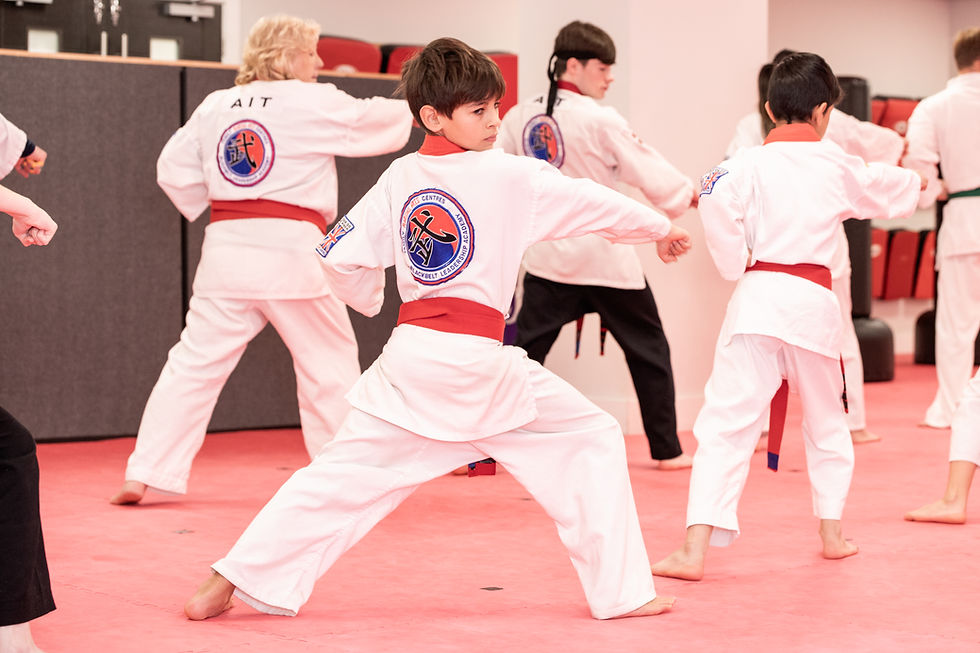The Benefits of Practicing Martial Arts for Fitness and Discipline
- North Manchester FMAC
- May 15, 2025
- 4 min read
Martial arts have gained immense popularity over the years, not just as a method for self-defense, but also as an effective way to improve health and discipline. By engaging in martial arts, individuals experience significant physical and mental transformations. This post will delve into the numerous benefits of practicing martial arts, highlighting how it can enhance your fitness and instill a sense of discipline in your daily routine.

Enhancing Physical Fitness through Martial Arts
One of the most obvious benefits of practicing martial arts is the enhancement of physical fitness. Martial arts involve a variety of techniques that require strength, flexibility, and endurance. Traditional styles such as karate, judo, and taekwondo incorporate cardiovascular workouts, strength training, and core stability exercises.
Cardiovascular Health
Most martial arts classes involve high-intensity training which raises your heart rate, promoting cardiovascular health. A study published in the Journal of Sports Science found that regular participants in martial arts demonstrate improved heart function compared to those who lead a sedentary lifestyle.
Additionally, kicking, punching, and sparring require intense bursts of energy, helping to burn calories. For example, an hour of karate training can burn anywhere from 400 to 700 calories depending on the individual's body weight and effort level.

Strength and Flexibility
Martial arts also contribute significantly to building strength and flexibility. The various stances, kicks, and maneuvers in martial arts require muscular engagement from head to toe. Over time, you'll notice increased muscle tone and a boost in functional strength, enhancing performance in daily tasks.
Flexibility is crucial in martial arts for executing kicks and avoiding injuries. Regular practice encourages static and dynamic stretching, leading to improved flexibility and range of motion. A flexible body not only protects against injuries but also enhances athletic performance in various sports.
Mental Awareness and Focus
Beyond physical fitness, martial arts training plays a vital role in developing mental awareness and focus. Training often emphasizes mindfulness, as practitioners must maintain concentration during techniques and sparring sessions. This focus extends beyond the dojo, benefiting individuals in their academic and professional lives.
Engaging in martial arts requires mental discipline. Students learn techniques and forms, pushing the brain to memorize movements and strategies. This ongoing cognitive engagement can improve memory and mental acuity.
Building Discipline Through Martial Arts
Discipline is a core value taught in martial arts. Whether you are practicing karate, judo, or Brazilian jiu-jitsu, the routines instill key lessons in self-discipline that children and adults can carry into all aspects of their lives.
Developing a Routine
Martial arts training requires commitment. Students must attend classes regularly, practice their techniques at home, and even participate in tournaments. Establishing a training schedule fosters accountability and discipline.
The hard work and dedication involved in earning belts or ranks serve as milestones that reward perseverance. Each level achieved represents a significant investment of time and effort, reinforcing the concept of delayed gratification.
Respect and Etiquette
Martial arts often emphasize respect for instructors, fellow students, and the art itself. Students learn to bow upon entering and leaving the dojo and show respect through proper greetings and communication. These practices cultivate a sense of humility and respect that can be carried into everyday encounters and relationships.
Respect is not just about manners; it's also about the recognition of effort. Students learn to acknowledge the hard work of their peers and instructors, which fosters a supportive training environment.
What Martial Art Do Navy SEALs Learn?
Navy SEALs are known for their exceptional physical conditioning and combat skills. To achieve this, they often train in a variety of martial arts and combat techniques. One of the primary martial arts disciplines they focus on is Brazilian jiu-jitsu (BJJ).
BJJ is effective for grappling and ground fighting. It emphasizes technique and leverage, allowing a smaller person to defend against larger adversaries. Navy SEALs incorporate BJJ to improve their grappling skills, which enhances their overall efficiency in close combat situations.
In addition to BJJ, SEALs may also train in other martial arts like Muay Thai, which teaches striking techniques, and Krav Maga, known for its focus on real-life self-defense situations. This comprehensive training equips them with a diverse skill set for various combat scenarios.

Improving Emotional Well-Being
Martial arts provide an excellent outlet for stress relief and emotional well-being. Engaging in physical activities can release endorphins, often referred to as the "feel-good" hormones, which help alleviate stress and anxiety.
Building Self-Confidence
As practitioners progress, they often experience increased self-confidence. Achieving new belt rankings and improving techniques instills a sense of accomplishment. This newfound confidence can transfer to other areas of life, impacting personal relationships, academic performance, and career advancement.
Furthermore, learning self-defense techniques can empower individuals, providing a sense of security and safety in their daily lives. This empowerment is especially beneficial for children and adolescents, who can learn to stand their ground and assert themselves in various situations.
Community and Social Skills
Joining a martial arts class also allows individuals to connect with others, fostering a sense of community. Participants often form bonds with fellow classmates, learning valuable social skills. Teamwork is also nurtured during group drills and sparring sessions, enhancing communication and cooperation.
Moreover, martial arts schools typically encourage family involvement, creating opportunities for families to train together. This shared experience can strengthen family relationships and improve communication skills within the family unit.
A Lifelong Commitment to Fitness and Discipline
Practicing martial arts can lead to a lifelong journey of fitness and discipline. The structural nature of martial arts can provide a unique blend of physical training, mental challenges, and personal growth.
Students of all ages can benefit from martial arts training, making it a versatile physical activity that suits various lifestyles and fitness levels. Whether you are a child learning the basics or an adult seeking a new challenge, there is a martial art for everyone.
Fostering a culture of discipline within martial arts will not only enhance your training experience but also create a positive change in various aspects of life.
By committing to a martial arts journey, you not only improve your fitness but also enrich your capacity for discipline, respect, and resilience.






Comments